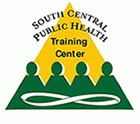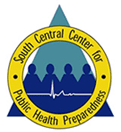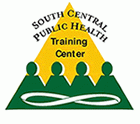Family Advocacy and Involvement in Title V Programs

Course Description:Collaboration between Title V Maternal and Child Health Programs and family leaders provides a “win-win” opportunity to leverage programmatic expertise with families as an action arm for advocacy.
Category
- General Public Health
Format
- Self-study / Enduring
Credits
- 2.00 Participation/CE
Introduction to Points of Dispensing (POD)

Course Description:This course will familiarize POD workers and public health personnel with the basic purpose, constitution and operations of a Point of Dispensing during a disaster.
Category
- Behavioral Health
Format
- Self-study / Enduring
Credits
- 5.00 Participation/CE
Overview of Community Management of Patients in Disaster

Course Description:Disaster imposes adverse consequences upon community populations in several different but synergistic ways.
Category
- General Public Health
Format
- Self-study / Enduring
Credits
- 1.00 Participation/CE
The Role of Health Literacy in Disaster Preparedness

Course Description:This course discusses risk communication in emergency preparedness situations such as disasters and crises. It describes how to use communications to offset threats that people experience in these situations.
Category
- Behavioral Health
Format
- Self-study / Enduring
Credits
- 2.00 Participation/CE
Introduction to Program Monitoring and Evaluation in Maternal and Child Health: Session Two - Program Description and Logic Model

Course Description:This session discusses the importance of needs assessments in informing program evaluation and guiding the formulation of realistic evaluation goals and objectives.
Category
- Maternal and Child Health
Format
- Self-study / Enduring
Credits
- 2.00 Participation/CE
Environmental Strike Teams

Course Description:Environmental health practitioners have important roles and must perform a number of critical functions during emergency response such as, conducting shelter assessments, testing drinking water supplies, conducting food safety inspections, and controll
Category
- Behavioral Health
Format
- Self-study / Enduring
Credits
- 2.00 Participation/CE
Introduction to Program Monitoring and Evaluation in Maternal and Child Health: Session Three - Process Evaluation

Course Description:This session discusses the importance of process evaluation in understanding the context of program implementation. This session will introduce the Family Nurse Partnership program to illustrate process evaluation findings.
Category
- Maternal and Child Health
Format
- Self-study / Enduring
Credits
- 2.00 Participation/CE
Introduction to Program Monitoring and Evaluation in Maternal and Child Health: Session Four - Outcome Evaluation

Course Description:This session discusses the importance of outcome evaluation in establishing a causal link between an intervention and observed results.
Category
- Maternal and Child Health
Format
- Self-study / Enduring
Credits
- 2.00 Participation/CE
Introduction to Program Monitoring and Evaluation in Maternal and Child Health: Session Five - Data Collection

Course Description:This session discusses the issues to consider when making decisions about data collection. It will survey the most common data collection methods used in the evaluation of MCH programs.
Category
- Maternal and Child Health
Format
- Self-study / Enduring
Credits
- 2.00 Participation/CE
Introduction to Program Monitoring and Evaluation in Maternal and Child Health: Session Six - Analyze and Disseminate Findings

Course Description:This session discusses the analysis and use of program evaluation findings. This session provides strategies and steps to analyze quantitative and qualitative data and to disseminate findings.
Category
- Maternal and Child Health
Format
- Self-study / Enduring
Credits
- 2.00 Participation/CE

 Facebook
Facebook Twitter
Twitter LinkedIn
LinkedIn Forward
Forward